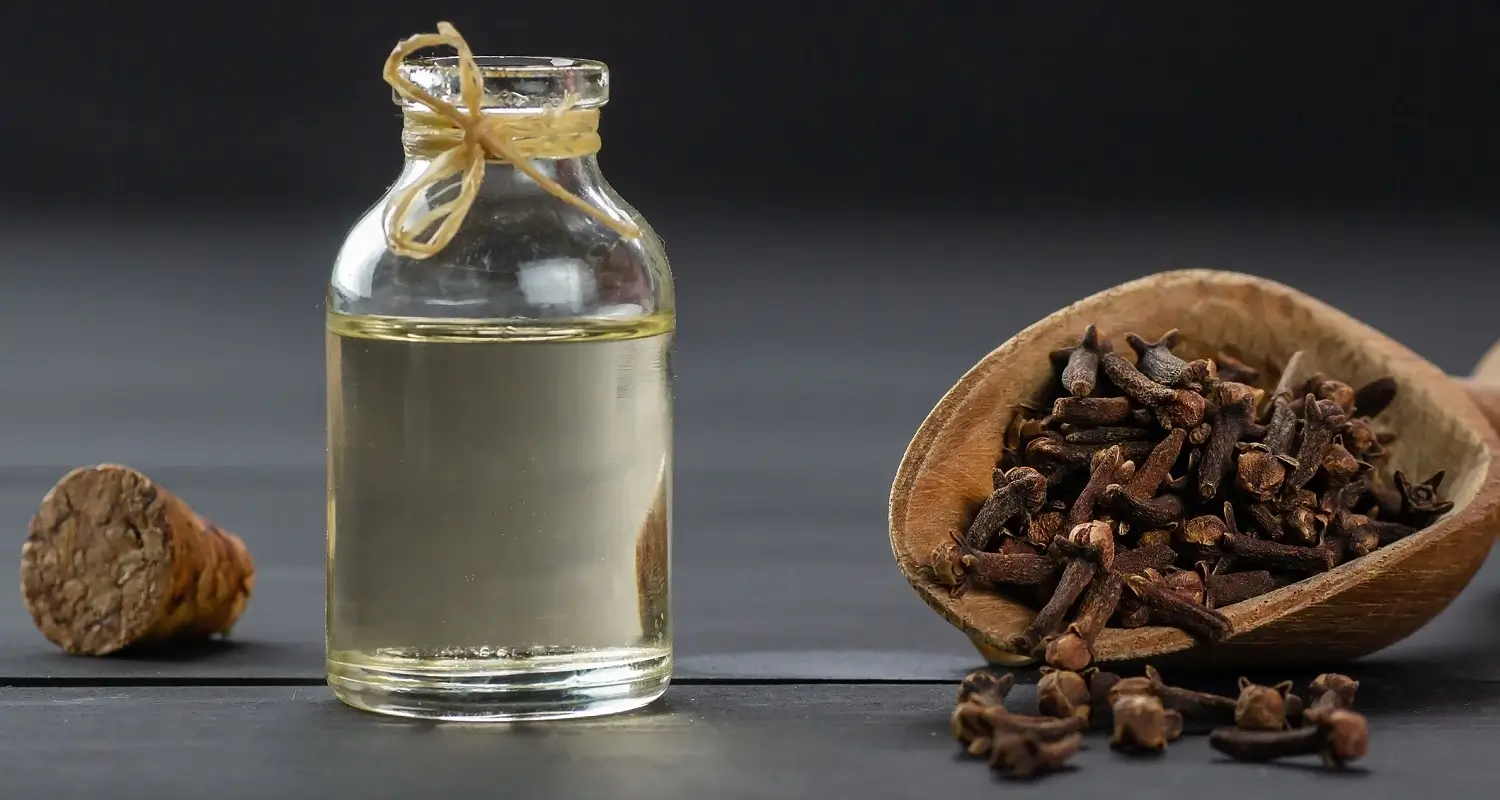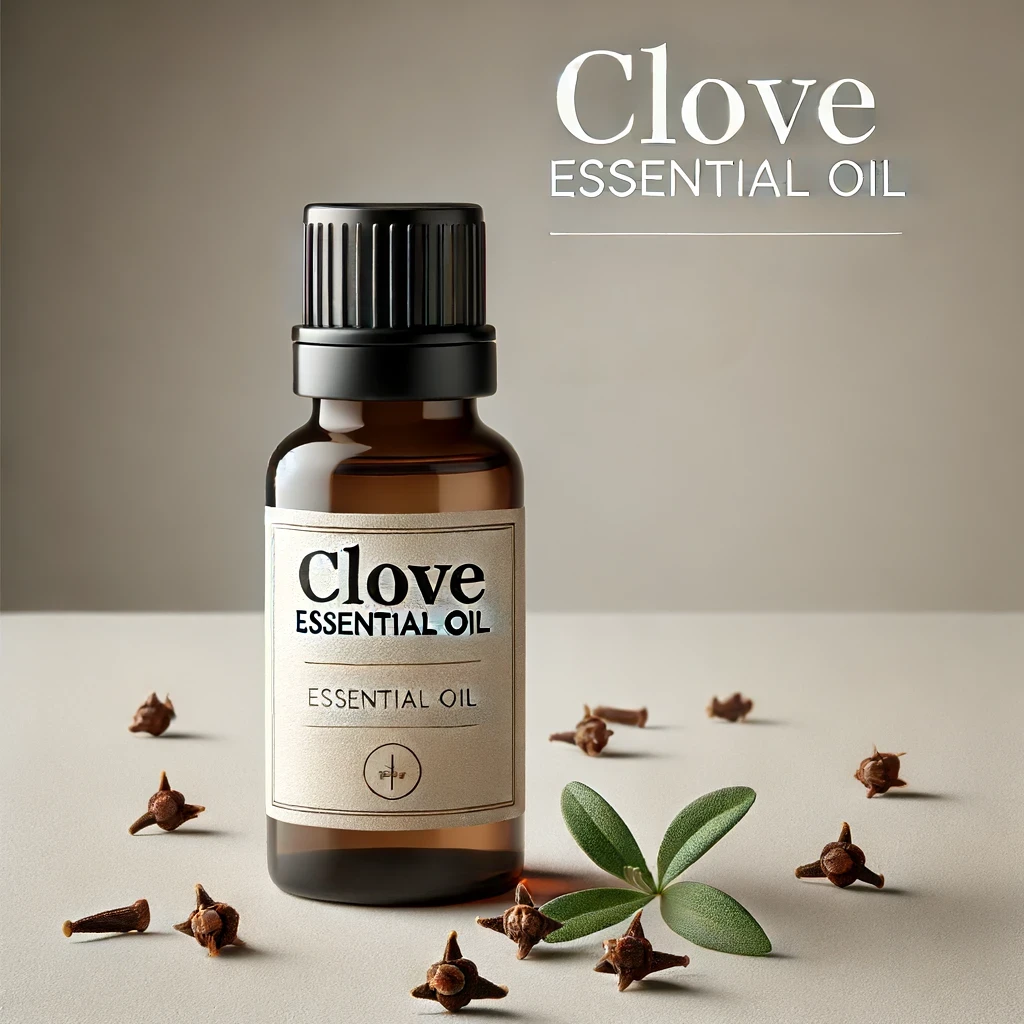Last Updated on: 12th December 2025, 05:43 am
Clove Essential Oil for Toothache: An Ally in Oral Health
When a toothache strikes, it can be one of the most uncomfortable and disturbing experiences. Although a visit to the dentist is essential for proper diagnosis and treatment, an ancient remedy has been passed down through generations that modern science has begun to support: clove essential oil for toothache. This natural product stands out for its analgesic and anti-inflammatory properties, making it an effective complement to combat unbearable discomfort.
Understanding toothache: Causes and Symptoms
A toothache is a warning sign that something is wrong with our oral health. It can be the result of several factors, ranging from minor problems to conditions that require immediate medical attention. Among the most common causes is tooth decay, which occurs when bacteria break down the surface of the tooth, creating cavities that can reach the nerve and cause pain. Other causes of dental pain include gum disease, tooth infections, tooth abscesses, fractured or damaged teeth, and worn fillings.

The Analgesic Virtues of Clove Oil
The use of clove essential oil for toothache has its roots in traditional Chinese and Ayurvedic medicine. It contains a compound called eugenol, which has been shown to have sedative and anesthetic effects on teeth. When applied to a swollen gum or painful tooth, eugenol reduces the perception of pain almost immediately. Its anti-inflammatory action complements the effect by reducing swelling and local irritation.
Several scientific studies have shown that clove oil not only relieves pain but also contains antibacterial properties. This means that it prevents the proliferation of bacteria in the mouth, which is essential when we talk about cavities or dental infections. Although it does not replace dental treatment, it can undoubtedly provide significant relief while we wait for our appointment with a specialist.
Correct Application of Clove Oil as a Home Remedy for Dental Pain
For those who decide to use clove essential oil for a toothache, it is important to do it the right way to maximize its effectiveness and avoid complications:
1. Dilute clove oil with a carrier oil, such as coconut or olive oil. It is not advisable to apply it directly in the mouth, since it is very powerful and could irritate the mucosa.
2. Apply the solution gently to the affected gum or tooth, with the help of a cotton ball or swab.
You can also add a drop to a glass of water and use it as a mouthwash. This method helps distribute the properties of clove oil throughout the oral cavity, providing a widespread calming effect.

Precautions and Contraindications of Clove Oil
As with any natural remedy, clove essential oil for toothache should be used with caution. There are certain conditions, such as allergies, pregnancy, or liver diseases, where its use may not be recommended. Additionally, excessive use can disrupt the beneficial bacteria and natural balance in your mouth.
Consultation with a dentist is always recommended before starting any home treatment, especially in cases of severe or persistent dental pain. The professional will be able to advise on the convenience of its use and the appropriate dosage, ensuring that the remedy is safe and effective.
Integration of Clove Oil into the Oral Hygiene Routine
Clove essential oil for toothache can be an excellent complement to your oral hygiene routine. It can be added to homemade toothpaste or used in mouthwash to take advantage of its disinfecting and refreshing properties. Of course, it is essential to continue with your conventional oral hygiene habits, such as brushing and flossing, to maintain long-term dental health.
Alternatives to Clove Oil for Dental Pain
While clove essential oil is a popular choice, some prefer other natural or pharmacological alternatives. Over-the-counter pain relievers, such as ibuprofen or acetaminophen, are effective in controlling pain until you can see the dentist. Remedies such as cold compresses or salt water rinsing may also provide temporary relief. To find out the best options and most dependable oils, read our article on “Essential Oils for Toothache“.

Conclusion
Clove essential oil for toothache is a natural option that is effective in relieving oral pain and inflammation. Its application, always with due precautions and in the appropriate concentration, can be an immediate help for uncomfortable dental pain. However, it should not be forgotten that consultation with a professional is vital to treat the underlying cause of the pain and to avoid future complications. The intelligent use of clove oil can be a great ally, but it does not replace professional dental care.
Frequently Asked Questions
Is clove essential oil effective in relieving toothache?
Clove essential oil is known for its content of eugenol, a chemical that acts as a powerful anesthetic and antibacterial agent. This begs the question: can clove oil be an effective solution for tooth and tooth pain? The answer is yes. Eugenol, present in cloves, has been used in dentistry since the 19th century and has become a recognized treatment for relieving oral pain.
How to prepare instant clove oil to relieve toothache?
Did you know that you can make your own instant clove oil for toothache relief at home? It is easy! Start by grinding whole cloves. Next, add a quarter teaspoon of olive oil to the ground cloves. Mix this combination well and dip a cotton swab in it. Carefully apply to the inflamed area of your mouth for quick relief. A homemade solution for those awkward moments!
What are effective essential oils for fighting dental infections?
Essential oils are popular allies for relieving common pain, but they also have medicinal properties thanks to their antibacterial capacity, which makes them useful for treating dental infections. Among the essential oils you can use are frankincense oil, thyme oil, clove oil, oregano oil, among many more. These essential oils are known for their properties that can help fight dental infections and provide relief. Discover how they can be your allies in the fight against dental infections!
Can I apply clove essential oil directly to the gums?
Never apply clove oil directly to your gums undiluted. If you want to use clove oil to relieve toothache, dilute 3 to 5 drops of clove oil in 1 teaspoon of a neutral, edible carrier oil, such as olive, canola, grapeseed, or sweet almond oil. Then, soak a cotton ball in the diluted mixture and carefully apply it to the affected gums, avoiding direct contact with the tooth. This precaution is essential to ensure the safe and effective use of clove oil in your oral treatment.
Share:
References
1. Barrell, A. (Mar 19, 2018). Clove oil for toothache: Use and side effects. Medicalnewstoday.com. https://www.medicalnewstoday.com/articles/321256
2. Four essential oils that can help with a toothache. (May 19, 2021). Healthline. https://www.healthline.com/health/dental-and-oral-health/essential-oils-for-toothache
3. Nowak , K. , Ogonowski , J. , Jaworska , M. , & Grzesik , K. (s/f). Clove oil – properties and applications. Information.pl. Retrieved November 5, 2023, from https://www.infona.pl/resource/bwmeta1.element.baztech-article-BPP2-0017-0048/content/partDownload/cd0e5590-dcab-330f-9e66-f92e2666f6d8
4. Watson, S. (Sep 22, 2010). Can clove oil help relieve dental pain? Verywell Health. https://www.verywellhealth.com/the-use-of-clove-oil-in-dentistry-1059310















